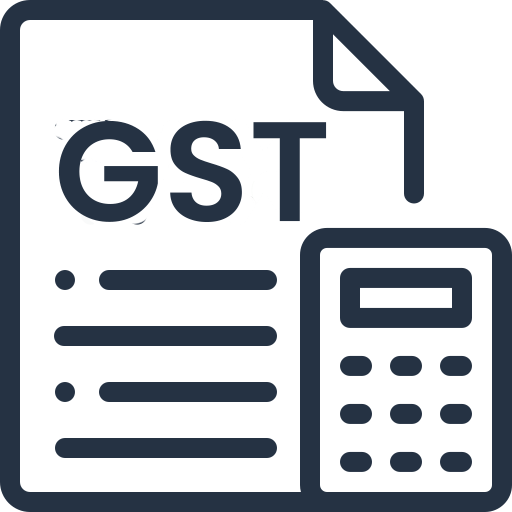Changes in New ITR Forms for Assessment Year 2024-25
11 Big Changes in New ITR Forms for AY 2024-25
What You Need to Know!
1. Individuals/HUFs liable for audit can verify ITR using EVC (No DSC Required)
[ITR 3]
Rule 12 has been amended to allow individuals and HUF who are liable to tax audits under Section 44AB to verify the return of income through an electronic verification code. Earlier, they could verify the returns only through digital signature
2. Furnishing of due date for filing of return
[ITR 3, 5 and 6]
A new column has been inserted in ITR Forms seeking information on the deadline for submitting the income tax return. The taxpayer is required to select the applicable due date for filing the return from the provided dropdown options, namely, July 31st, October 31st or November 30th
3. The new tax regime is the default tax regime (115BAC); taxpayers must choose to opt-out to go with the old regime
[ITR 1, 2, 3, 4 and 5]
The Finance Act 2023 has amended the provisions of Section 115BAC to make it the default tax regime for the assessee being an Individual, HUF, AOP, BOI and AJP. If an assessee does not want to pay tax according to the new tax regime, he will have to explicitly opt out of it and choose to be taxed under the old tax regime.
To exercise this option, the assessee having income (other than income from a business or profession) must indicate his choice of tax regime in the return of income to be furnished for the relevant assessment year under Section 139(1).
An assessee having income from a business or profession can also opt out of the new tax regime and switch to the old tax regime for a relevant year. However, he has to exercise this option in Form No. 10- IEA on or before the due date for filing the return of income under Section 139(1).
In simple words, an assessee filing ITR 2 is only required to indicate his choice of tax regime in the return of income. An assessee filing ITR 3 will be required to file Form 10-IEA to opt out of the new tax regime.
The new ITR Forms have been amended to incorporate this change in following Areas:
1. Furnishing of the reason for tax audit under Section44AB
[ITR 3, 5 and 6]
New ITR-3 seeks additional details from the assessee subject to audit under Section 44AB. The additional information pertains to the circumstances under which the company is obligated to undergo an audit, such as:
- Sales, turnover or gross receipts exceed the limits specified under Section 44AB;
- Assessee falling under Section 44AD/44ADA/44AE/44BB but not offering income on presumptive basis;
- Others.
2. Furnishing of acknowledgement number of the Audit Report and UDIN at time of Filling Audit Report ( No provision of later UDIN Generation)
[ITR 3, 5 and 6]
When providing information about audits conducted under Section 44AB, including audit under Section 92E, companies are required to furnish the acknowledgment number of the audit report and the UDIN.
3. “Receipts in Cash” column added to claim enhanced turnover limit
[ITR 3, 4 and 5]
The Finance Act, 2023 has enhanced the turnover threshold limit from INR 2 crores to INR 3 crores for opting for the presumptive taxation scheme under Section 44AD if the receipts in cash do not exceed 5% of the total turnover or gross receipts for the previous year. It is also provided that the meaning of cash would include the cheque or a bank draft, which is not an account payee.
Similarly, Section 44ADA was amended to enhance the threshold limit of gross receipts from INR 50 lakhs to INR 75 lakhs, if the receipts in cash do not exceed 5% of the total gross receipts for the
previous year.
To give effect to the above amendments, the CBDT has amended ITR forms to include a new column of “receipts in cash” for disclosing cash turnover or cash gross receipts under the Schedule BP.
4. Disclosure of the sum payable to MSME beyond the prescribed time limit
[ITR 3, 5 and 6]
Section 43B deals with specified deductions which are to be allowed on a payment basis. Thus, even if an assessee follows the mercantile method of accounting, deduction pertaining to the specified expenses shall be allowed only when payment has been made.
Part A-OI (Other Information) consists of information wherein the assessee is required to furnish the details of any amounts disallowed under Section 43B in any previous year but allowable during the year.
The Finance Act 2023 has inserted a new clause (h) in Section 43B to provide that any sum payable to a micro or small enterprise beyond the time limit specified in Section 15 of the Micro, Small and Medium Enterprises Development Act 2006 (MSME Act) shall not be allowed as a deduction.
Accordingly, a new column is inserted under Part A-OI (Other Information) to disclose the sum payable to Micro or small enterprises beyond the specified time limit per the MSMED Act.
5. Disclosure of information pertaining to the Capital Gains Accounts Scheme
[ITR 2, 3, 5 and 6]
The Schedule-CG of ITR forms seeks information about the capital gains earned by the taxpayer. This schedule requires various details, including information about the capital asset sold, the particulars of the buyer, and specifics regarding the amount spent for claiming exemptions.
In the newly notified ITR-2, Schedule-CG has been modified to gather more information pertaining to sums deposited in the Capital Gains Accounts scheme (CGAS). The revised schedule now requires the inclusion of the following additional details towards CGAS:
- Date of deposit Account number
- IFS code
Until the previous Assessment Year, taxpayers were only required to provide details pertaining to the sum deposited in CGAS.
6. New Schedule 80GGC seeks details of contributions made to political parties
[ITR 2, 3, 5 and 6]
Section 80GGC allows for a deduction for contributions to a political party or electoral trust. The new ITR forms include a new Schedule 80GGC, which requires the furnishing of the following details:
- Date of Contribution
- Contribution Amount (with a breakdown of contributions made in cash and other modes)
- Eligible Contribution Amount
- Transaction Reference Number for UPI transfer or Cheque Number/IMPS/NEFT/RTGS
- IFS Code of the Bank
Unlike the previous ITRs, the new ITR forms require disclosing additional information beyond just the amount eligible for deduction under Section 80GGC.
7. Schedule 80U inserted for claiming deduction if the assessee is a person with a disability
[ITR 3]
Deduction under Section 80U is allowed to a resident individual who is suffering from a disability or severe disability. An absolute deduction of INR 75,000 or INR 1,25,000 is allowed under this provision if an individual is suffering from a disability or severe disability, respectively.
In the previous ITR forms, taxpayers were required to mention the amount claimed as a deduction under Section 80U in Schedule VI-A. However, in the new ITR-3, a new ‘Schedule 80U’ has been added, seeking details of deduction in case of a person with a disability.
The ‘Schedule 80U’ seeks the following details:
- Nature of disability
- Date of filing Form 10-IA
- Acknowledgment number of the Form 10-IA UDID number (If available)
8. New Schedule 80DD seeks details towards maintenance & medical treatment of the person with a disability
[ITR 2 and 3]
Deduction under Section 80DD is allowed to a resident individual or HUF who incurs medical expenditure or pays an insurance premium for the benefit of a family member suffering from a disability. An absolute deduction of INR 75,000 or INR 1,25,000 is allowed under this provision if an individual is suffering from a disability or severe disability, respectively.
In the previous ITR forms, the taxpayers were required to mention the amount claimed as a deduction under Section 80DD in Schedule VI-A. The new ITR forms have introduced a new ‘Schedule 80DD’ seeking details of deduction in respect of maintenance, including medical treatment of a dependent with a disability.
These details comprise:
- Nature of the disability
- Type of dependent (spouse, son, daughter, father, mother, brother, sister or member of the HUF)
- PAN of the dependent Aadhaar of the dependent
- Date of filing and acknowledgement number of Form 10-IA UDID Number
9. Schedule-OS includes an additional column for the declaration of bonus payments received under life insurance policies
[ITR 2 and 3]
The Finance Act 2023 made various amendments with respect to the taxation of life insurance policies. A new clause (xiii) has been inserted in Section 56(2), which provides that the sum received from excess or high premium life insurance policies is chargeable to tax
under the head ‘other sources’.(amendment)
ITR forms have been updated to incorporate reporting of such income in Schedule-OS.
10. Reporting of all banks held at any time
[ITR 2, 3 and 5]
The ITR forms require information about the All taxpayer’s bank accounts, including the selection of the specific account for receiving income tax refunds.
11. Assessee recognized as MSME
[ITR 5 and 6]
The new ITR-5 mandates that an assessee should furnish information regarding its recognition status as a Micro, Small, and Medium Enterprise (MSME). It is also required to provide the registration number allotted as per the Micro, Small and Medium Enterprises Development Act, 2006.
No change in the applicability of ITR forms
The CBDT has not amended the criteria for the applicability of ITR forms to different classes of taxpayers and methods of furnishing returns.
The form to be used by a taxpayer to file the Income-tax return for the AY 2024-25 will be same as applicable for AY 2023-24.
Looking For Best Tax Consultancy Services in Vadodara?
In addition to providing software services , we also offer expert services to help you manage your business and legal compliances.

Goods & service Tax
GST Registration , GST Return Filing , GST Consultancy.

Accounting Service
Monthly, quarterly, and annual financial reporting statements.

Company Registration
LLP , Private Limited Company, Proprietorship.

Income tax Return
Income Tax Return, Tax consultancy, Tax Planning and Assessments

Drafting Of Legal
Affidavits , Shareholder Contract Drafting , Master Purchase and Sale Agreements.

Audit & Assurance
Internal Audit,Stock Audit,Statutory Audit Assurance.
